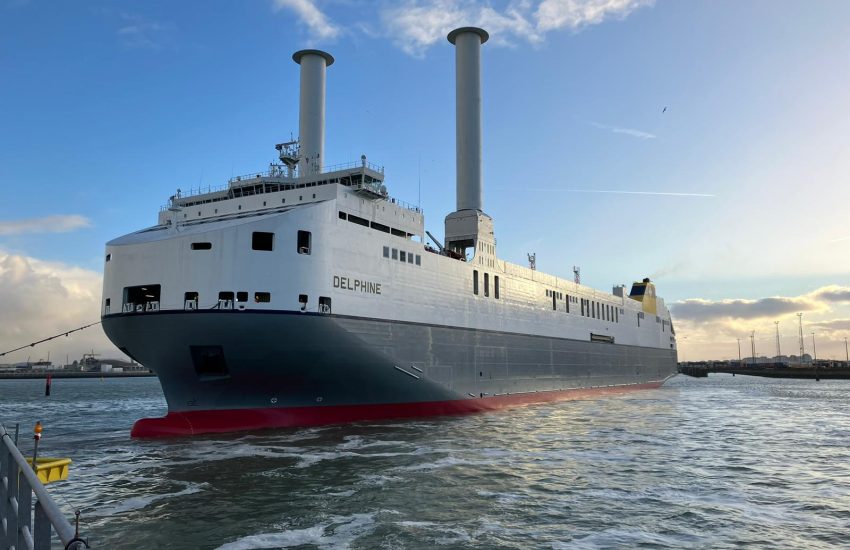CLdN offers customers best short sea CO2 efficiency

CLdN today published its fleet emission data for 2023. CLdN’s weighted average fleet emissions were 39g CO2/tonne-km. This was 19% better than CLdN’s next-best performing short sea competitor1 and more than twice as efficient as road transport by heavy goods vehicle2. This directly benefits all CLdN customers and the supply chains they serve by reducing the scope 3 emissions of their cargo.
CLdN is the leader in its sector in driving real emission reductions across its fleet through a combination of capital investment, technological innovation, fleet management and other efficiency measures.
To reduce fuel consumption and emissions, CLdN has been investing in new, larger, more fuel-efficient RoRo ships and in eco-upgrades of its existing vessels. CLdN has invested some EUR 750 million in new RoRo ships over the past decade. The result is that CLdN operates more than 30 technologically advanced ships with an average vessel age of 11.5 years compared to a peer group3 average fleet age of 16.5 years.
These recent investments, combined with a daily focus on fuel consumption reduction in its operations, has led to consistent improvement in the carbon efficiency performance of CLdN’s fleet as reported in the European Commission’s Monitoring, Reporting and Verification (EU-MRV) platform. This enables a comparison of the Energy Efficiency Operational Indicator (EEOI)4 of each ship as calculated in CO2 emissions for the transport work done in tonne-kilometres.
Commenting on the performance, CLdN CEO Florent Maes said: “We are proud of our leadership in carbon efficiency, and we will continue to drive reductions in the carbon intensity of our shipping and port activities. CLdN's efforts are an outlier in a sector where many competitors demonstrate either no evidence of carbon efficiency improvements or implement largely cosmetic measures with limited impact. In 2025 we will take delivery of the two new 8,000 lane metre vessels that are currently under construction in South Korea. Compared with our largest vessels currently in operation (Celine and Delphine), the new ships will further reduce CO₂ emission intensity by 40% while having the same cargo capacity.”
For more information, please consult CLdN’s 2023 Carbon Report due out soon!
